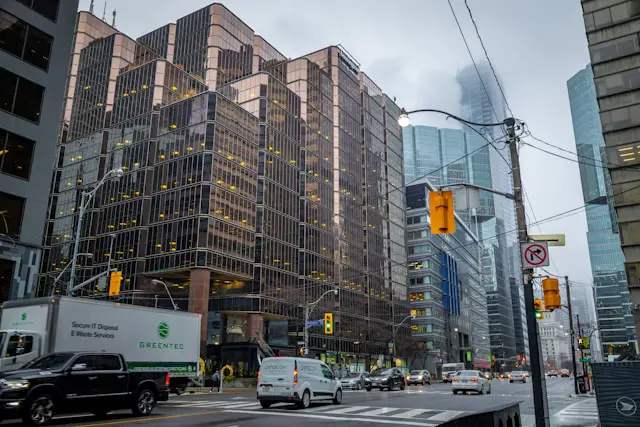Canada, known for its breathtaking landscapes and high quality of life, also features some of the most expensive cities in North America. From the bustling metropolitan areas to picturesque coastal towns, living costs in these cities can be quite steep. Here’s a detailed look at the ten most expensive cities in Canada, covering key aspects like housing, utilities, and overall living expenses.
Vancouver, British Columbia
Vancouver consistently ranks as one of Canada’s most expensive cities. The high cost of living here is largely driven by its exorbitant real estate market. The city’s stunning natural beauty, mild climate, and economic opportunities contribute to its high housing prices. As of 2024, the average home price in Vancouver is well over $1 million, making it difficult for many residents to afford homeownership. Additionally, the cost of groceries, transportation, and utilities is significantly higher compared to other Canadian cities.
Toronto, Ontario
Toronto, Canada’s largest city, also stands out for its high living costs. Its real estate market has seen significant growth, with average home prices approaching $1.2 million. The city is a major financial hub, attracting both domestic and international professionals, which drives up the cost of goods and services. In addition to high housing costs, Toronto’s public transportation and dining expenses are also relatively high, contributing to the overall cost of living.
Victoria, British Columbia
Victoria, the capital city of British Columbia, is known for its charm and high cost of living. The city’s real estate market is competitive, with average home prices around $900,000. The cost of living in Victoria is further driven up by its popularity as a retirement destination, which increases demand for housing and services. Utility costs and grocery prices are also notably high compared to other cities in Canada.
Burnaby, British Columbia
Adjacent to Vancouver, Burnaby is another city where living costs are on the rise. While housing prices are slightly lower than Vancouver, they are still substantial, averaging around $800,000 for a single-family home. Burnaby’s proximity to Vancouver adds to its appeal, and as a result, housing demand and prices have increased. Utilities and general expenses in Burnaby are also relatively high.
Montreal, Quebec
Montreal, often regarded for its cultural diversity and vibrant arts scene, is also among the more expensive cities in Canada, though it generally offers a lower cost of living compared to Vancouver and Toronto. The city’s real estate market has seen rising prices, particularly in desirable neighborhoods. While still more affordable than its western counterparts, housing and living costs in Montreal can be significant, especially for those seeking proximity to the city center.
Calgary, Alberta
Calgary’s cost of living has been steadily increasing, particularly in terms of real estate. The city’s housing market has experienced growth, with average home prices around $600,000. As a major economic center in Alberta, Calgary’s living costs are also impacted by its vibrant job market and high salaries. Groceries, utilities, and other expenses are higher compared to other Alberta cities, though Calgary remains more affordable than Vancouver or Toronto.
Ottawa, Ontario
Ottawa, Canada’s capital, has a relatively high cost of living, driven by its robust job market and government presence. Housing prices in Ottawa are around $700,000 on average, with costs for utilities and groceries also contributing to the overall expense. The city’s high living standards and attractive amenities make it a desirable place to live, though this comes at a higher price.
Edmonton, Alberta
Edmonton’s cost of living is influenced by its real estate market and the local economy. Home prices in Edmonton average around $550,000, which, while lower than cities like Vancouver and Toronto, still represents a significant expense for many residents. The city’s utility costs and overall expenses are also higher compared to other Alberta cities, adding to the cost of living.
Halifax, Nova Scotia
Halifax, the largest city in Atlantic Canada, has seen a rise in living costs, particularly in the real estate sector. With average home prices around $500,000, the city’s housing market is becoming increasingly expensive. The cost of groceries and utilities in Halifax also contributes to its higher living expenses, though it remains more affordable than many major cities in Canada.
St. John’s, Newfoundland and Labrador
St. John’s, known for its unique charm and coastal beauty, rounds out the list of Canada’s most expensive cities. The cost of living here has risen due to increased housing prices and higher costs for goods and services. While St. John’s offers a relatively lower cost of living compared to major metropolitan areas, it remains one of the more expensive cities in Atlantic Canada.
The high cost of living in these Canadian cities reflects a combination of factors, including real estate prices, demand for housing, and general expenses. Whether driven by economic opportunities, natural beauty, or cultural vibrancy, these cities offer unique benefits and challenges for their residents. As the real estate markets and cost of living continue to evolve, potential movers should carefully consider these factors to ensure their new home fits their budget and lifestyle needs.













